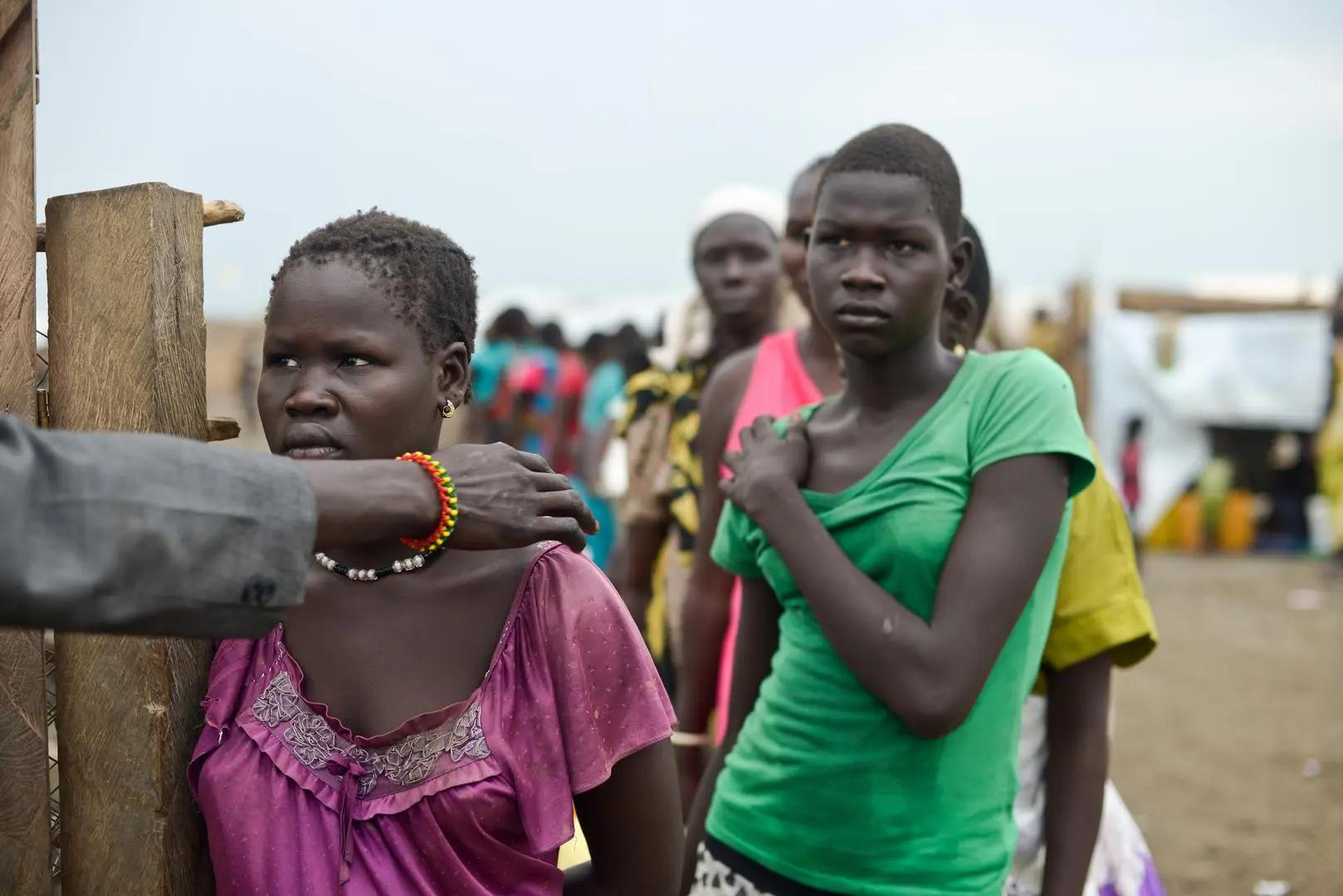YAOUNDÉ, Cameroon – Amid South Sudan’s protracted civil conflict, which recently erupted anew with fighting between government forces and militia members in early September that left at least 14 people dead, a leading Catholic bishop has said the country is sitting on “volatile bombs of youth anger, family collapse and national silence.”
Bishop Eduardo Hiiboro Kussala said a recent gang rape in the national capital of Juba, which for many South Sudanese has come to symbolize the terror and lawlessness gripping their country, called the incident “a cry, a symptom … a signal that something deep and dangerous is unraveling in our nation’s soul.”
Kussala made the remarks in a pastoral letter titled a “Pastoral and Patriotic Call” to the majority Catholic nation, pointing to the gang rape incident as an especially troubling wake-up call.
The incident in question involved a gang of clearly intoxicated young men taking turns on a 16-year old girl to sexually assault her. Investigations later revealed that the girl belonged to a rival gang. Investigators report that the rape incident was a case of revenge, highlighting the scale of gang violence in the Horn of Africa country.
Kussala said that incident was symbolic of a deeper malaise afflicting the nation.
“What happened is not just a crime,” the cleric wrote.
He said what happened in Juba was only the tip of the Iceberg, explaining that “gangs, violence, addiction and trauma are quietly spreading across the nation from Nzara to Malakal, from Wau to Torit, from Yambio to Renk, from Rumbek to Nimule and from Tombura to Pibor, from Bor to Yei,” citing the country’s major population centers.
Kussala said all this is happening because “we have raised children in trauma with no peace, no bread, no fathers and no direction…we have normalized violence, and now our children inherit it as culture.”
He said years of war have broken families, and he accused the country’s institutions of failing to rebuild the damage.
“Our children were left to fend for themselves,” he said.
Contrary to the general belief that gang violence is confined to urban centers, the South Sudanese cleric believes it is “a national emergency.”
“It reaches into every state, every county, and every village,” he wrote.
In personal comments to Crux, the 61-year-old Kussala said his country is still scarred by the wounds of a bloody civil war from 2013 to 2020, which broke out two years after the country achieved independence in 2011.
“Violence, fear and displacement remain painful realities,” he said.
Father John Gbemboyo, Pastoral and Social Communication Coordinator in the Sudan Catholic Bishops’ Conference, told Crux that the violence also means “the absence of secure corridors necessary for the delivery of humanitarian aid, including food and medical supplies.”
Kussala said the worsening situation cannot be blamed on one person alone. It is a shared responsibility of all stakeholders, he said, including the government, civil society, churches, traditional rulers and political actors.
“If our children now cry out through crime, it is because they were not heard when they cried in silence,” he told Crux.
He said the scourge can only be stopped with compassion, boldness and deep and patient love.
“Let us stop pointing fingers and start opening our hands. Not every answer lies in force. Guns cannot heal trauma. Prisons cannot restore purpose,” he said.
Kussala cited the case of El Salvador, which tried military crackdowns to silence gangs, but they [the gangs] only grew.
Better examples, he argued, come from countries such as the U.S., where after-school programs and church-led safe zones were deployed in Chicago as a way out of gang violence.
In Columbia, he said, former gang members have become peace builders because the government gave them education, employment, and dignity. In Kenya, the Mathare Social Justice Center now employs former gang members as mentors in slums.
“South Sudan must not be the nation that repeats the world’s mistakes. Let us be the one that models a new way,” Kussala said.
In terms of a blueprint, he prescribed love not fear, compassion not condemnation, counseling not confrontation, and inclusion not isolation.
“We must not see our young men as enemies. They are traumatized sons, children of war, orphans of broken homes, and victims of systemic neglect,” he said.
Kussala urged the nation to follow in the footsteps of Sudan’s St. Josephine Bakhita, a former slave who once said: “If I were to meet my captors, I would kneel and kiss their hands, for through them, I came to know God.” He also extolled the legacy of St. Oscar Romero, who lived in gang-ridden El-Salvador and who said: “Peace is not the product of terror or fear. Peace is not the silence of cemeteries. Peace is the generous contribution of all to the good of all.”
Kussala offered concrete proposals, including the establishment of safe spaces for youths, forming ex-gang members to be peacemakers, turning pulpits and mosques into voices for healing and nonviolence, reforming policing and the justice system, and reuniting lost youths with their families.
Kussala also urged Churches, civil society, the government, and traditional rulers to “rise together not in anger but in solidarity; to stop condemning from afar, and start embracing from within.”
The cleric underscored the need to “plant gardens in the hearts of our youths,” warning that otherwise “they will grow weeds of violence and despair.”
He prayed to God to “ to heal the wounds of those trapped in gangs, rescue those in darkness and despair, strengthen families in love, inspire leaders with wisdom, united the nation in justice and peace, and to make Sudan a nation in which no child is lost, where every youth is cherished, and where peace blossom like a garden of hope.”















